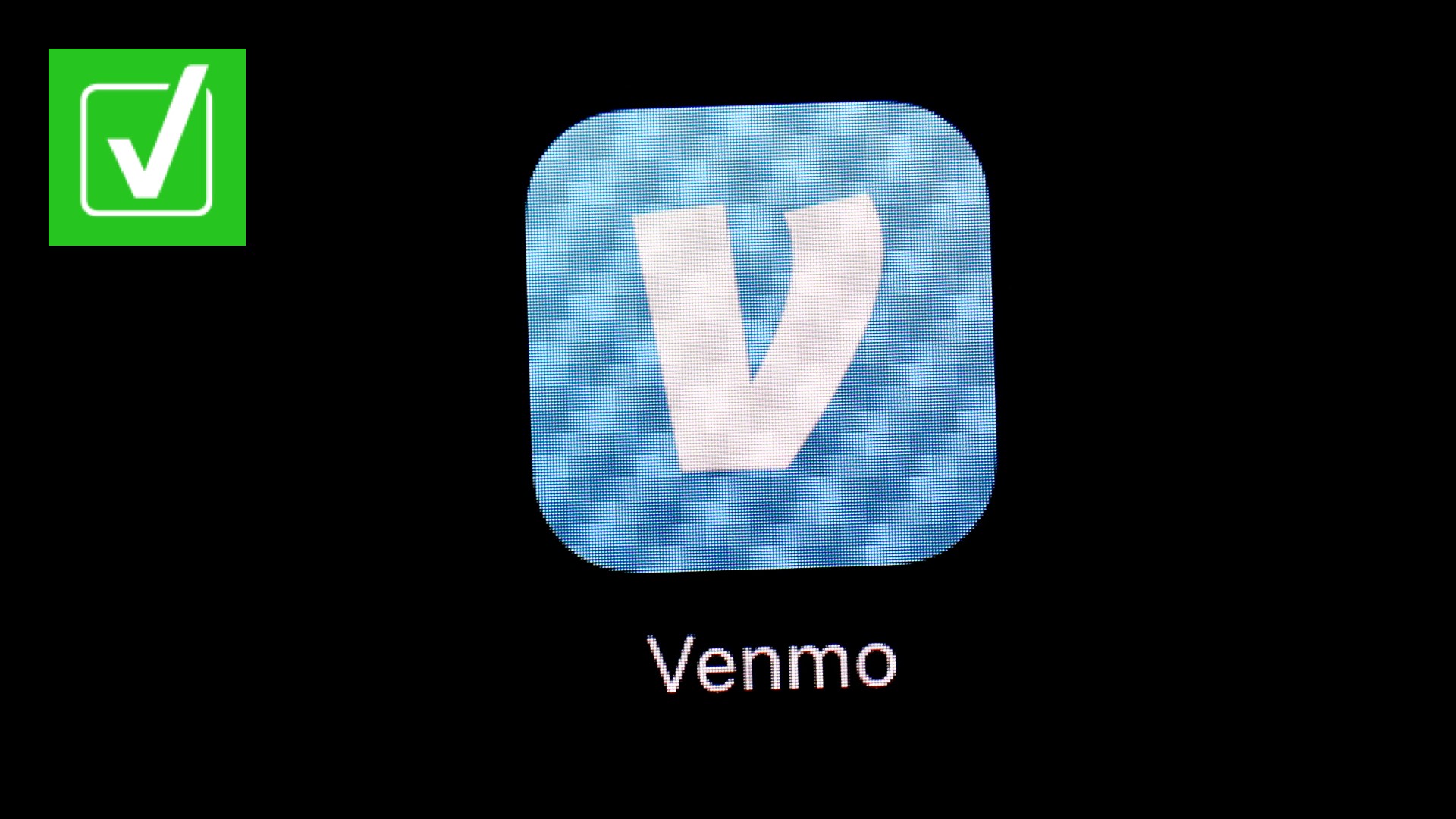WASHINGTON D.C., DC — A viral video on Instagram has 441,000 views and has been liked more than 8,500 times. It claims that starting in January 2022, if you receive more than $600 per year through third-party apps like Cash App, Venmo or Zelle, you will be taxed.
“So if you are a small business owner or gig worker and you get money through these apps, you want to start getting your paperwork together now because you will be taxed on that,” the viral video claims.
Let’s VERIFY: Will business owners receiving more than $600 a year with these apps need to start paying taxes next year?
Are our sources are Darius Hinton, CPA CMA, who is licensed in DC, The American Rescue Plan Act of 2021, and this proposal from The Treasury Department to Improve Tax Compliance.
First - let’s look at small businesses.
“As a small business owner, it is true. This has already been happening if you're a small business owner. Typically, with third-party apps you sign up for what's called a merchant account and so if you were bringing in more than $600 aggregate, or in total. You already got what was called a 10 99k,” Hinton said.
Hinton added the big difference for small business owners is the dollar amount. The American Rescue Plan Act lowers it from $20,000 to $600 starting next year.
“As a small business owner, I'm already completing the 10 99k tax form. Sometimes people will tip me through Cash App, Venmo, PayPal all these different third-party apps, and it's very disheartening that the gifts that I receive as being a small business owner will not be taxed.
Small business owners like Turalloy Jackson, the owner of reCrowned, will be directly impacted. Jackson started her business in 2020. Since then, she’s sold a few thousand dollars in merchandise and third-party apps are how she allows her customers to pay. She reminds fellow business owners to make sure they have business banking accounts.
“I want to make sure that my personal accounts are separate from my business accounts, so that when I put in how much I'm making and how much income I’m getting from that business and reporting appropriately to the IRS,” Jackson said.
Hinton added if you receive tips or any other related business expense through certain apps, it’s a quick fix to change them from personal to merchant accounts.
“Within the app, you can actually convert your account to a business account if you're not a business,” Hinton added.
We can VERIFY – yes business owners earning $600 a year with those apps will need to start paying taxes on that income.
What about everyday people who use the apps to split checks and bills? Hinton said there’s a proposal on the table that if passed, would require a 10 99k form for individual users on these apps. But, if you can prove that money wasn’t business income, you won’t be taxed.

